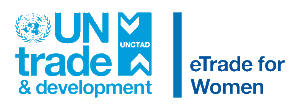
On 12 March 2025, shortly after International Women’s Day, the UPU hosted a dynamic webinar exploring how partnerships between postal operators and fintechs can drive digital financial inclusion for women and girls worldwide. The event also marked the launch of the UPU study on Post–fintech partnerships to overcome gender inequality through access to postal digital financial services. More than 240 participants joined the online event, representing diverse regions and numerous countries.
Bridging the financial divide
Moderated by Ian Kerr, host of the UPU Voice Mail podcast, the webinar highlighted the urgency of advancing digital financial inclusion for women and girls.
Masahiko Metoki, UPU Director General and International Gender Champion, reaffirmed the organization’s commitment to empowering women across the postal sector. “Ensuring women’s financial inclusion is not just necessary for their empowerment: it is also a key driver of economic growth, sustainable development and social progress,” he stated.
Susan Alexander, UPU Sustainability Services Programme Manager, provided an overview of the postal sector’s vast global reach, with nearly 680,000 post offices employing over 4.6 million people worldwide. “With 85% of people worldwide receiving mail directly at their homes, the postal network is well-positioned to contribute to inclusive and sustainable development,” she remarked.
While acknowledging the importance of digital finance, she stressed that “awareness raising and education are also essential, especially where women may lack digital literacy”. She introduced the new UPU study examining women’s access, regulation and strategies to bridge financial gaps.
Insights from the study
Lead researcher Sahana Arun Kumar, Managing Director at Amarante Consulting, presented the key findings of the study. She noted that a persistent financial gap of 1.7 trillion USD continues to limit women-led businesses, particularly in emerging markets. “The financial sector could unlock 700 billion USD in annual revenue if financial services were offered to women at the same rate as to men,” Kumar stated.
The study analyzed the demand side (women’s behaviours and trust issues), the supply side (barriers to inclusive product design), and the enabling environment (regulation, infrastructure and capacity building). It highlighted the need for tailored services that align with women’s financial cycles and caregiving responsibilities.
Based on surveys sent to 103 postal operators and focus groups across six countries, the study revealed varied financial access and awareness of digital financial levels. Ms Kumar stressed the importance of strong leadership, gender-responsive policies and fintech partnerships to accelerate financial inclusion. “Posts can play a transformative role in enhancing women’s financial inclusion, but this requires tailored services, strategic partnerships, and an understanding of women’s unique financial challenges and needs,” she concluded.
Ms Kumar also shared powerful testimonials from women using postal digital financial services. A woman in Jakarta voiced concerns about using digital payments independently, reinforcing the need for financial literacy. In Senegal, a vegetable seller noted that mobile banking helped avoid long queues, while an entrepreneur in Mexico emphasized the need for personalized and flexible credit services tailored to her time constraints.
Expanding inclusive models: lessons from Morocco
Zakia Hazzaz, Director of International Cooperation at Al Barid Bank (Morocco), shared Morocco’s efforts to expand women’s financial inclusion. The bank has introduced “Hssab Laky”, a free product for low-income women, supporting digital fund management and remittance services. It has also launched a mobile app and deployed financial counsellors in rural areas. “Our strategy is focused on breaking down barriers by ensuring ease of access to our financial products and promoting digital financial education,” she noted.
Role of regulations and policies: insights from Tanzania
Cecilia Sylvester Mkoba, Postal Services Manager at Tanzania Communications Regulatory Authority, outlined Tanzania’s framework for financial inclusion, prioritizing access and support for disadvantaged groups, including women and smallholder farmers. Tanzania Posts Corporation offers agency banking, money transfers, mobile banking and savings groups to reach underserved communities.
Ms Mkoba stressed the importance of supportive regulations and public–private collaboration. “Regular policy reviews, infrastructure development and strategic collaboration with the government, banks, NGOs and fintechs are critical in sustaining progress for women’s financial inclusion,” she stated.
Visa’s commitment to financial inclusion
Azrin Azlina Anuar, Head of Government Solutions for Asia Pacific at Visa, presented Visa’s four-pillar strategy: payments and savings, acceptance, education and identity. Visa partners with postal services to strengthen fraud management and security for digital offerings.
Visa’s Practical Business Skills programme has reached nearly 96 million people globally. Through The Asia Foundation’s Accelerate My Business initiative, Visa supports women entrepreneurs with mentorship and digital growth. On the identity front, Visa is developing secure digital ID solutions to facilitate access to financial services. “When women gain financial tools, they reinvest 90% of their income in their families and communities, driving economic development,” Ms Anuar added.
Panel discussion: strengthening women’s financial inclusion
Moderated by Ian Kerr, the panel explored strategies to promote financial inclusion via postal and fintech partnerships. First, Ms Kumar shared details of Kenya Post’s (Postal Corporation of Kenya) partnership with a mobile wallet provider, while Ehiopost adopted a different approach by partnering with banks and telecom companies to ensure services are delivered over the counter.
Ms Mkoba discussed Tanzania’s success in working with Visa, Mastercard and mobile network operators, enabling women to sell products such as clove oil internationally via postal e-commerce. Ms Anuar reiterated the importance of access, education and security as a success factor.
The panellists stressed the need for fintechs to design gender-intentional solutions. Ms Kumar cited the example of Türkiye, where fintechs and banks train women entrepreneurs to operate in digital marketplaces. Trust and security were recurring themes. The discussion closed with a consensus on the importance of continuous evaluation, trust building, robust security and financial education to ensure long-term progress and success.
Watch the full webinar recording here.
Learn more about the webinar here.

